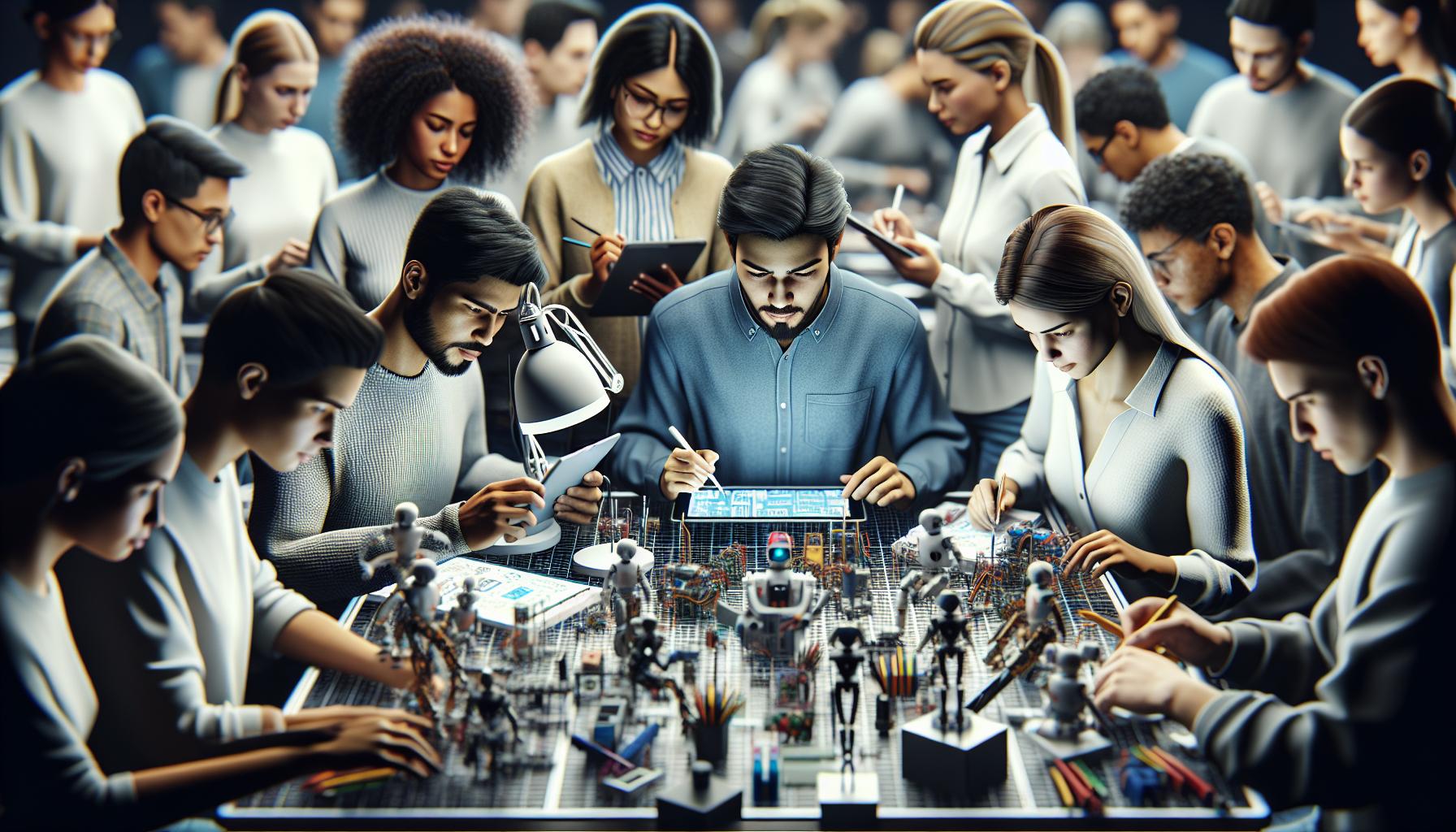Key Takeaways
- Technological innovation is not only about employing new tools, but also involves leveraging them to create real business value and new opportunities. It’s a human-centred process which requires a diverse team, a willingness to experiment, and the ability to learn from failures.
- Artificial Intelligence (AI) is steadily transforming our daily lives, from making mundane tasks easier to enhancing professional efficiency. However, it is essential to be mindful of the ethical and privacy issues associated with widespread AI usage, and safeguards need to be put in place.
- The future workplace is dynamically changing due to AI, with traditional office settings paving the way for remote work, and routine tasks being automated. To stay competitive, continuous learning and skills development, particularly in digital literacy and working with AI systems, are critical.
- Developments in green technologies are pushing us towards a cleaner, healthier environment. Technology plays a crucial role in managing renewable energy resources, crafting a more sustainable lifestyle for individuals, and protecting the environment via effective ecological monitoring and tracking.
- As technology advances, it’s vital to uphold ethical considerations and ensure technological governance. Establishing regulations and guidelines helps to balance progress with principles, ensuring technological developments align with societal values and public interest.
- Developing an innovative mindset and fostering it through an education system that promotes interdisciplinary learning, creativity, and critical thinking is crucial to thriving in a future driven by technology and innovation.
Artificial Intelligence in Everyday Life
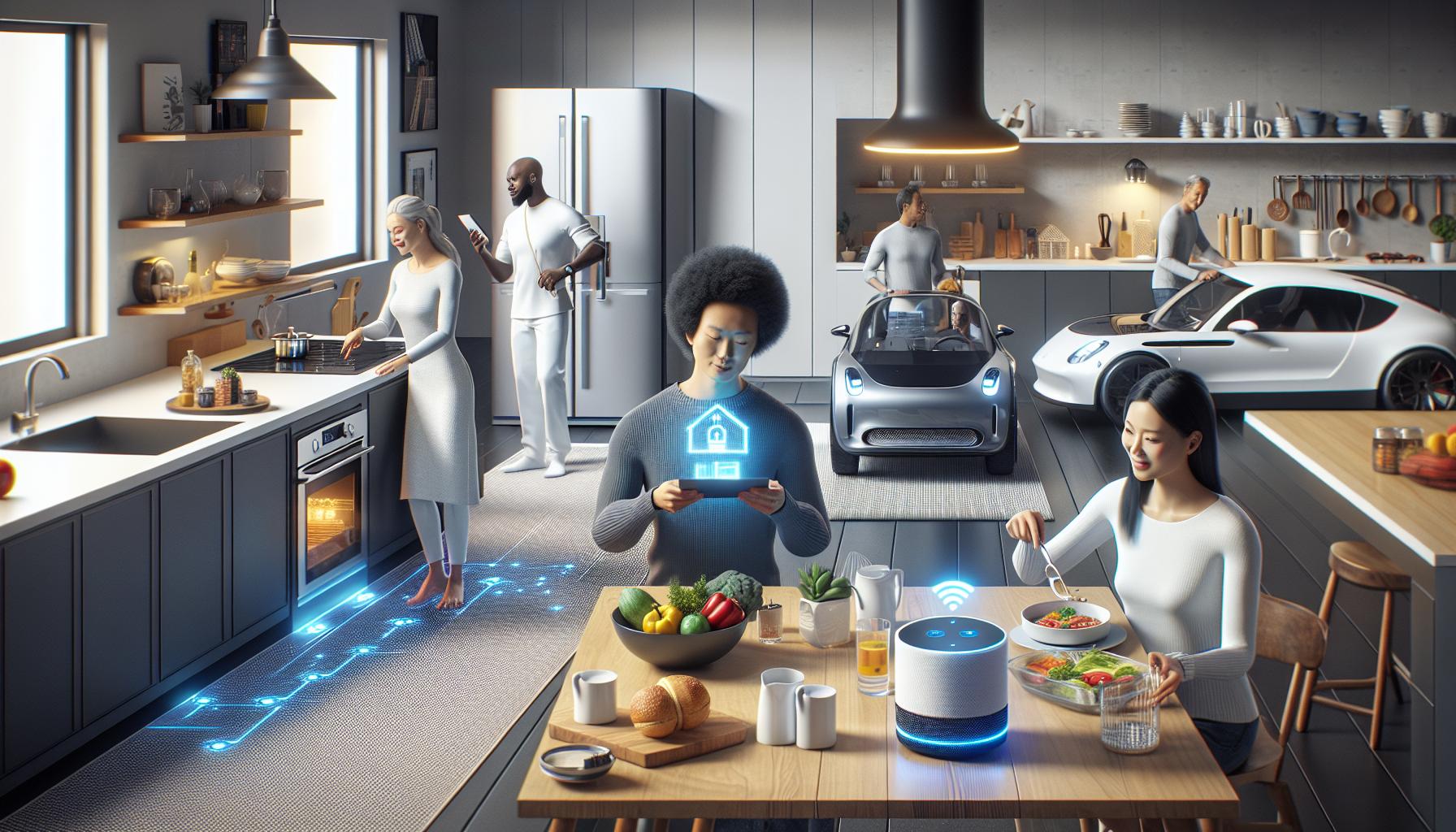
Once seen as just science fiction, AI is now a reality ingrained in our day-to-day existence. It’s become a silent partner, taking care of tasks big and small, and steadily transforming life as we know it.
Integrating AI into Daily Routines
Ever asked Siri about the weather, or let Alexa play your favourite tune? Maybe Netflix recommended a show that’s now your binge-watch favourite? That’s AI at work. It streamlines your life—from email sorting and face recognition to real-time navigation. The relation is deepening as smart home devices come to life, delivering unprecedented control over your living environment. Yes, life’s seemingly simpler now because AI’s doing the heavy lifting.
Benefits of AI in Personal and Professional Spheres
Imagine having someone who knows your tastes, makes informed recommendations, and even helps with health diagnostics. That’s AI, enhancing your experience from the comfort of your favourite social media app to healthcare. The role of AI extends to the world of work making data analysis seem like a breeze, automating tasks and sparking innovation like never before. Autonomous vehicles exploring the best routes for you represent another avenue where AI’s contributing to efficiency.
Ethical Considerations and AI
As we continue this dance with AI, it’s wise to pause and ponder – at what cost? As AI gorges on the feast of personal data fed to it, how safe is your privacy? Thought about societal biases that algorithms can amplify? As AI systems make increasingly autonomous decisions, shouldn’t there be safeguards and human oversight in place? Dealing with these thorny ethical considerations is crucial as we march towards a future where AI’s role continues to expand.
That’s the ride with AI so far. Yet, it’s just the tip of the iceberg; future advancements promise more fascinating shifts in our daily life. Are we ready to fully embrace this enticing, somewhat intimidating dance partner called AI? Only time will tell.
The Future of Work
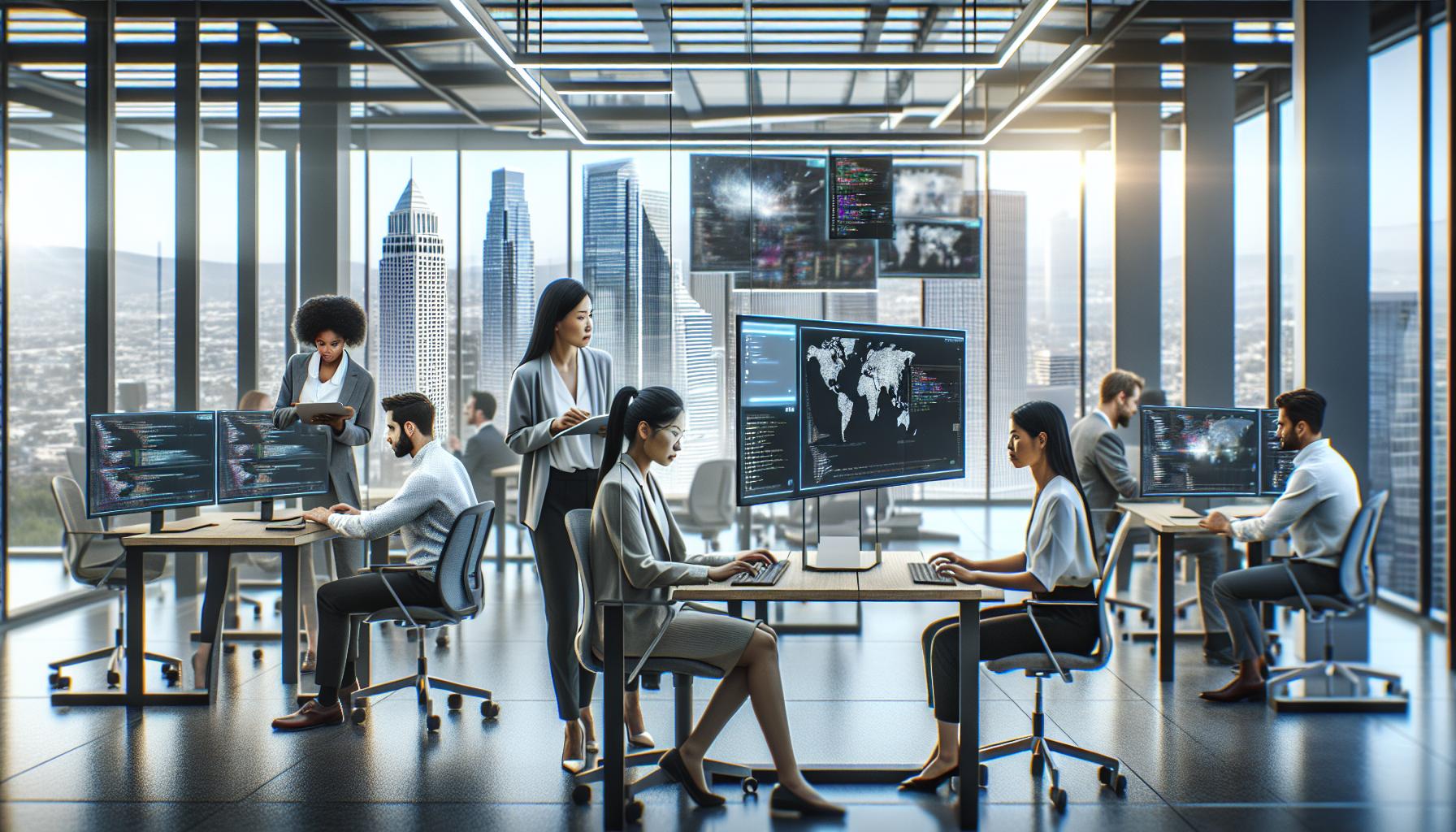
Evolving Work Environments and Practices
Artificial intelligence (AI) and automation are setting the tone for a dramatic shift within the workplace. But how has this shift impacted you directly? Traditional office settings are giving way to more dynamic, digitally oriented environments. You’re no longer confined by the four walls of an office cube. Remote work has become the new norm, thanks largely to AI-powered tools facilitating effective collaboration from any corner of the globe.
Skills of the Future
The advent of AI isn’t just changing where we work but how we work too. Routine tasks? Delegated to machines, waving goodbye to hours of monotonous toil. In the new world of work, your ‘soft skills’ like creativity, critical thinking, emotional intelligence, and adaptability take centre stage. Besides, there’s no ignoring that digital literacy isn’t optional anymore. Rather, it’s a must-have, with the ability to work alongside AI systems forming a key pillar of future success.
Preparing for the Jobs of Tomorrow
You’ve realised now that lifelong learning and continuous skill development aren’t just optimistic phrases thrown around by career counsellors. They’re a hard reality. You need to stay ahead of the curve, remaining competitive in the evolving job marketplace. And it’s not just you who needs to adapt, even education systems need to gear up. Students now, and in the future, require equipping with more than just academic knowledge. Emphasis lies on fostering problem-solving prowess, promoting collaborative approaches, and nurturing digital fluency to carve out success in tomorrow’s professional world.
Sustainable Technologies for a Greener Planet
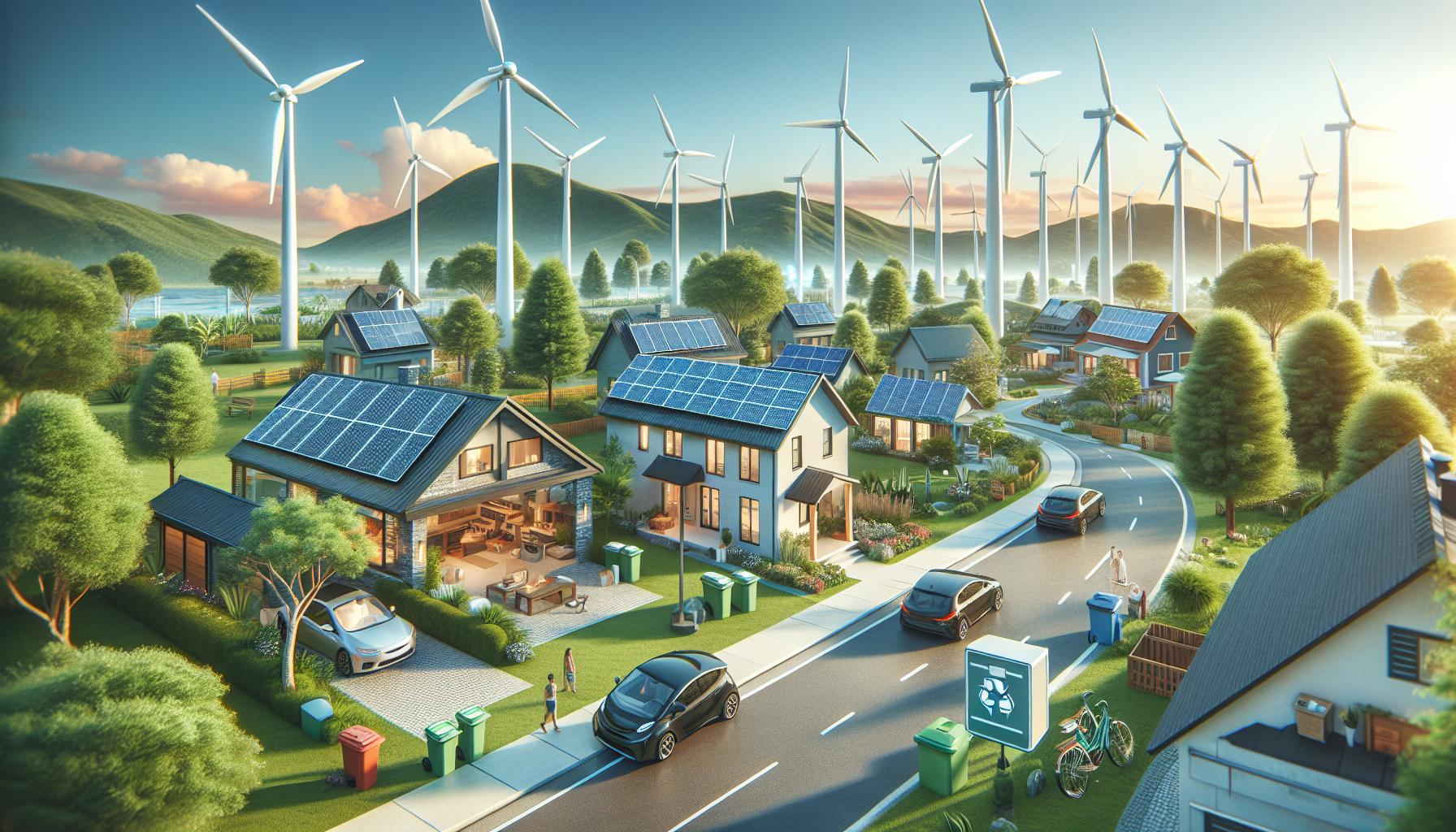
Innovations in Renewable Energy
Imagine a world powered by the wind, the sun, and water. It’s not just a dream, it’s becoming reality with advancements in renewable energy technologies. These powerhouses—solar, wind, and hydrogen power—are leading the charge to combat climate change. Reducing carbon emissions isn’t just about preserving the planet for future generations, it’s about creating a cleaner, healthier environment right now. And guess what? You’re part of that change every time you switch off unnecessary lights or opt for a cycle ride instead of a car trip.
Green Tech in Everyday Life
Picture this: you come home from work, your house has adjusted the temperature to your preference, the food in your energy-efficient fridge is wrapped in biodegradable packaging, and your electric vehicle sits charging in your garage. This isn’t some futuristic movie—it’s the here and now, powered by sustainable technologies. Eco-friendly living has evolved from a niche movement to a lifestyle accessible to everyone. And that’s down to green tech integration into our homes, transportation, and everyday consumer products. Remember, your daily choices affect the world’s sustainability. How’s that for a wake-up call?
The Role of Technology in Environmental Conservation
From the oceans’ depths to the highest mountain peaks, technology is transforming the way we protect our planet. Step into the world of environmental conservation, where Artificial Intelligence (AI) and modern technologies play an integral role for effective ecological monitoring, wildlife conservancy, and sustainability tracking. With real-time monitoring capabilities from satellite imagery analysis to IoT sensors, we can anticipate environmental threats before they escalate. So, next time you use your smartphone or switch on your Wi-Fi, think about the broader implications—could the same technology be helping us safeguard our environment?
Navigating the Ethical Landscape of Innovation
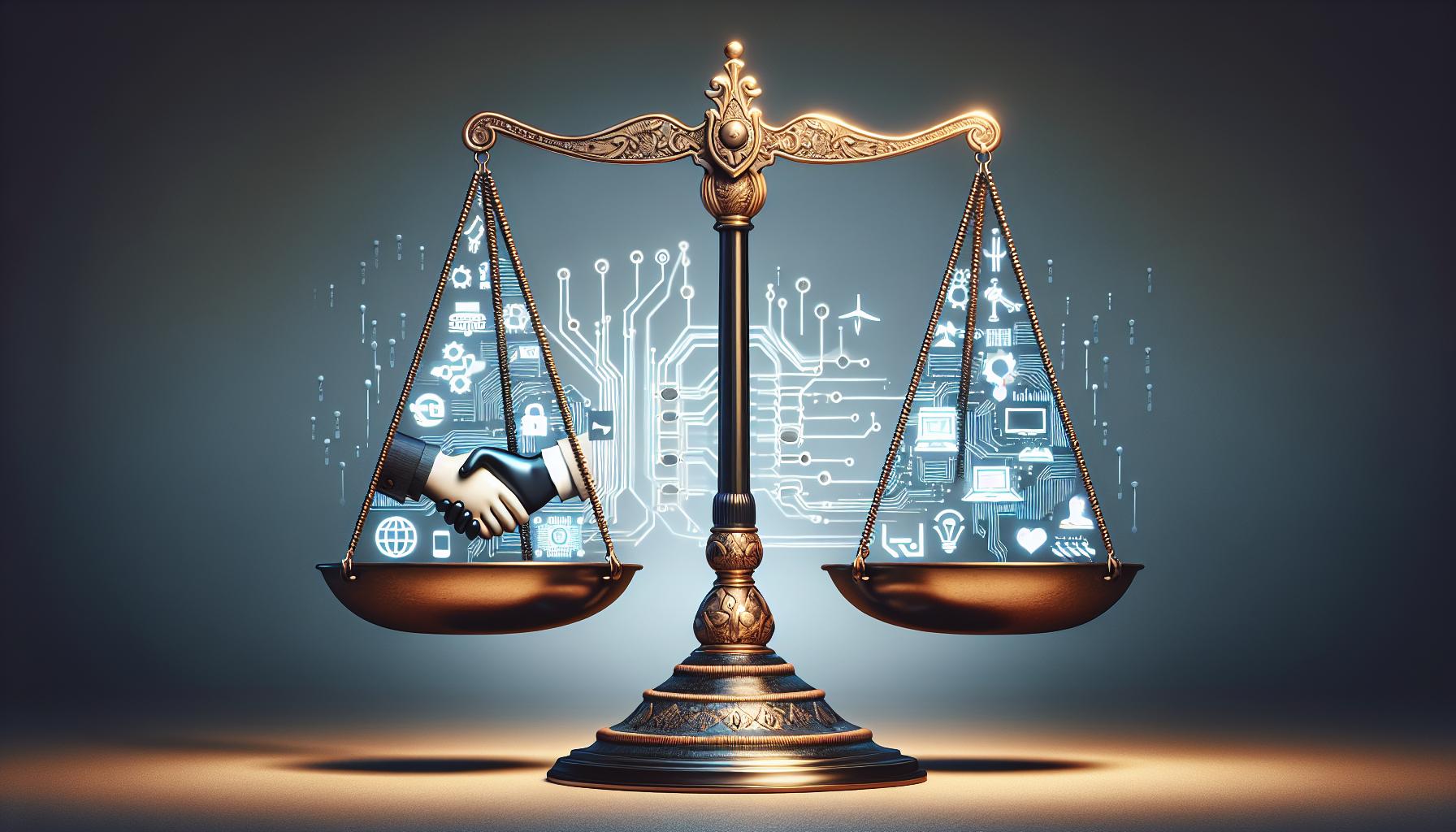
Balancing Progress with Principles
In our rapidly evolving digital world, you’re often faced with ethical quandaries. Job displacement, privacy matters, and possible misuse are real concerns that arise concurrently with technological advancement. But fear not, for there’s a way around these challenges. By diving deep into responsible innovation practices, we can navigate these murky ethical waters. What does this look like, you ask? Imagine a world where ethical AI development isn’t just a principle, but a standard practice, where there’s open and honest communication about the implications of these newly introduced technologies. That’s what it takes to balance progress with principles, to make sure we’re advancing ethically as well as technically.
Technology Governance and Policy
Next, let’s talk about one of the most vital structures holding this delicate balance in place – Technology Governance and Policy. As with any innovation, it’s critical that regulations and guidelines are in place to navigate the tide of advancement. Picture it as the lighthouse guiding technological development, ensuring that it’s in line with societal values and always has the public interest at heart. But it’s not a task that comes easily or done alone for that matter. It requires global collaboration and involvement from different stakeholders. So, let’s keep exploring these challenges and opportunities, for it is in our hands to ensure that technology governance becomes an effective guiding light in our increasingly interconnected world.
Embracing a Future Shaped by Technology and Innovation
Let’s investigate deeper into how we can better equip ourselves to navigate and shape this technologically driven future.
Cultivating a Mindset for Innovation
In this era of rapid disruption, adopting a mindset of curiosity is no longer optional – it’s a necessity. An innovative mindset isn’t just coming up with new ideas but is also about making them happen. It has a lot to do with your approach to risk – you’ve got to be willing to take a calculated leap. Remember, learning from failures is simply stepping stones to success. Embrace this perspective, and you’re already on your way.
The Role of Education of Fostering Innovation
Education, unsurprisingly, plays a key role in this. It not only helps you think critically but also arms you with problem-solving skills. Imagine the shift in how we perceive education if our curricula focused on interdisciplinary learning, rather than rote learning. Incorporating project-based approaches, working in sync with the industry and focusing on creativity can make for an education system adept at breeding innovators. This wouldn’t just bridge the gap between academics and the innovative workforce, it would obliterate it. Seems like something worth working towards, doesn’t it?
As you navigate your journey, remember technology and innovation aren’t merely buzzwords. They’re a mode of operation, a mindset. Embrace them, and you’re not just surviving the future – you’re shaping it.

